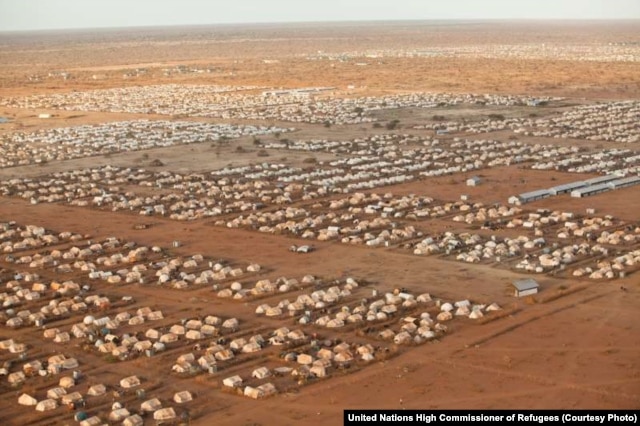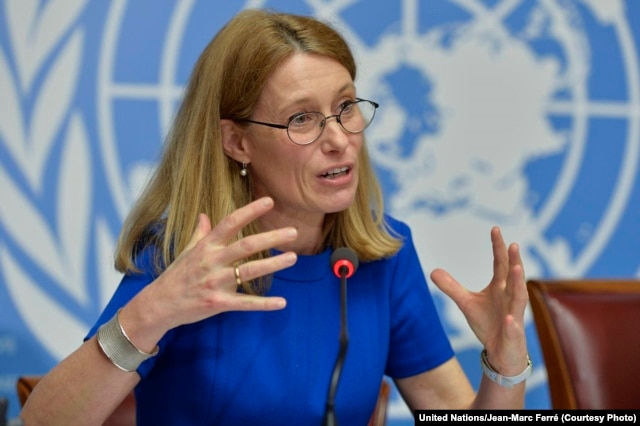The arrival Wednesday at Mogadishu International airport of 116 Somali refugees from a Kenyan camp marks a first step in efforts to repatriate greater numbers of Somali refugees from Kenya, the office of the U.N. High Commissioner for Refugees said.
An agreement by a Tripartite Commission, made up of the UNHCR, Kenya and Somalia, envisions the voluntary repatriation of some 425,000 Somali refugees from Kenya over a five-year period.
Most of the refugees – 330,000 – are living in Dadaab, the largest refugee settlement in the world.
Many of the refugees have been there since the 1990s and have given birth to children who have never been to Somalia.
FILE - An image of the world's largest refugee camp, Dadaab, in northeastern Kenya. Photo taken in 2012.
The return of the 116 Somali refugees follows a pilot repatriation program begun in December, which has successfully returned 3,000 refugees to the relatively safe districts of Luuq, Baidoa and Kismayo.
UNHCR spokeswoman Karin de Gruijl told VOA the refugees are receiving some money, food, seeds and other assistance. But, she acknowledges the situation in Somalia is far from ideal.
“The social-economic situation is very, very difficult and the situation is not there yet for loads and loads of people to return at this moment," de Gruijl said.
Security precarious
"The security situation in Somalia remains precarious. That is why we are targeting the returns to specific areas where we feel that there is more stability and we hope with development projects, with the return of refugees these areas of stability may grow and counter that," she said.
Under the new Tripartite Commission agreement, de Gruijl said these areas have been increased to nine districts in south central regions of Somalia. Refugees who voluntarily return there and to areas in Somaliland and Puntland will receive assistance to help them integrate in their new lives, she added.
De Gruijl said one of the reasons some refugees want to return to their homes of origin is that life in the Dadaab refugee camp is becoming more difficult.
She said aid agencies, such as the World Food Program (WFP), are running out of money and have to cut back on their assistance.
Reduction in aid
“WFP has just announced that it is going to reduce or has actually already reduced its food rations by 30 percent. Refugees in the camps are not allowed to leave the camps, so it definitely is not a good living situation and there is very little hope for the future," de Gruijl said.
"These are conditions that might influence them to go back," she added.
De Gruijl said plans are underway to hold a pledging conference, possibly in October to raise money for development projects in Somalia.
The UNHCR spokeswoman said it is crucial to rebuild the country’s roads, clinics, schools and other infrastructure to ensure that refugee returns are sustainable.


No comments:
Post a Comment